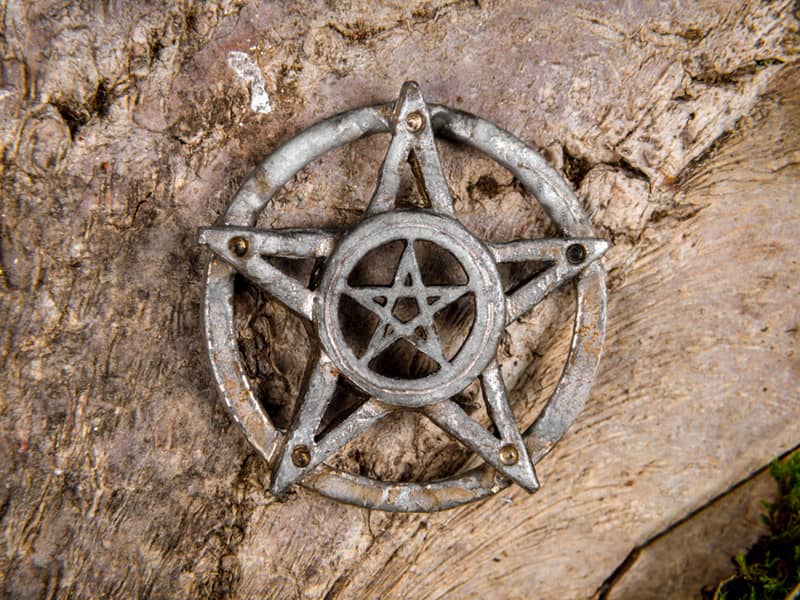
CNN did a documentary that was called "Atheists: Inside the World of Non-Believers." The film documented people who struggled with leaving their faith.
The 2015 Pew Religious Landscape survey reported found that 22.8 percent of the American population is religiously unaffiliated. Atheists make up a sliver of this with 3.1 percent, while agnostics were at 4 percent. Because they are not represented by large numbers, atheists are afraid to admit they don't have a supernatural god. Stan Bennett (This is not his real name) was a pastor at the time and no longer believed in God. Today he's a closet atheist. He offered his insight on the common misconceptions about atheism.
He shared that "atheists are associated with other labels such as satanists, communists, fascists and in my part of the world -- Democrats," he expressed to CNN."We're the bogeyman that will trample their rights, steal their children and TP their front yards."
Bennett has a blog called "A Preacher Man's Secrets" and still leads a small church somewhere in rural America. "And I still need a paycheck. I can't simply hop a freight train and move on. Well, I could but we need the healthcare and the income," he wrote.
Like Bennett, many are ashamed to come forth about being an atheist. Here is what they want people to know.
They are not less trustworthy.
Atheists are one of the highest group of people that Americans distrust. Atheists received a rating of 33 percent and lower on a scale between 0-100, only 20 percent of respondents gave atheists a rating higher than 67, Pew found. Atheists are no less trustworthy than anyone else as this is based on a person's character not on their religion.They are not bad people.
Author Greg Epstein wrote the best-selling book, Good Without God: What a Billion Nonreligious People Do Believe. He said that people believe that atheists are a bunch of angry white men. "Maybe some of us just want to put greater emphasis on who we are, rather than on what we're not. Sure, we don't believe there's a supernatural god. But it's more important to many of us to just try to live our lives as good people," he said. If you are religious, you don't want to be labeled as being a bad person. Yet, we do this to people who are not believers. You might not agree with atheists, but not all atheists are horrible people or evil.
They want to contribute to the world.
Some research found that children who are nonreligious are more generous than those who are affiliated with a religion. "Our findings robustly demonstrate that children from households identifying as either of the two major world religions (Christianity and Islam) were less altruistic than children from non-religious households," a study published by Current Biology found. Famous atheist and biologist Richard Dawkins started a relief fund after the Haitian earthquake to help victims. The bottom line here is a generous heart will give out of love for humanity, regardless of faith.They believe in community.
Epstein, who connects nonreligious people to community programs, told CNN that community is important, even if it is not in a congregation. "Congregations have been shown to help people live longer, be happier, less depressed and anxious, more likely to donate blood or give up a seat on a bus." A sense of community is not limited to a church, but the willingness to connect with people. Having healthy social networks can impact people all over the world, no matter what the religious affiliation may or not be.They are capable of being in political office.
A misconception that people have about atheists are they can't be in political office. Currently, there are no atheists serving in in office. This could because most "Americans would be less likely to support an atheist candidate for president," Pew found. The lack of support for atheism in the political world could be due to them unlikely winning an election. In an editorial on CNN, author Carlos S. Moreno explained: "Atheists are virtually unelectable and are a mark of prejudice against them and it impacts the ways we formally educate the future leaders of this country." Some states like Texas, Mississippi, Maryland, Arkansas, North Carolina, South Carolina, ban atheists from legally running from office. "No person who denies the existence of a Supreme Being shall hold any office in this state,” the Mississippi Constitution said. Outside the county, atheism is banned in Iran, Afghanistan, Malaysia, Maldives, Mauritania, Nigeria, Pakistan, Qatar, Saudi Arabia, Somalia, Sudan, Yemen and in the United Arab Emirates.They would like to stop the labels.
David Silverman is the head of the American Atheists, a non-profit organization that supports the rights of atheists and the removal of expressions of religion in public. He caused a controversy with his anti-Christmas billboard, which claimed that Christmas is a myth. Silverman said that if you don't believe in any god, you are an atheist--there is no in-between. He promotes more usage of the word "atheism."If you want to choose a different primary label, that is up to you, but we encourage the use of atheist because it's the most straightforward and the more we use it, the more we de-stigmatize it," he shared with CNN.You don't have to support atheism or even understand why people turn to it. Yet, we need to stop using broad strokes that all are horrible people, bad parents and are a drain on society. According to the studies and our culture, it doesn't look like Americans are changing their perception or position on atheism anytime soon.

